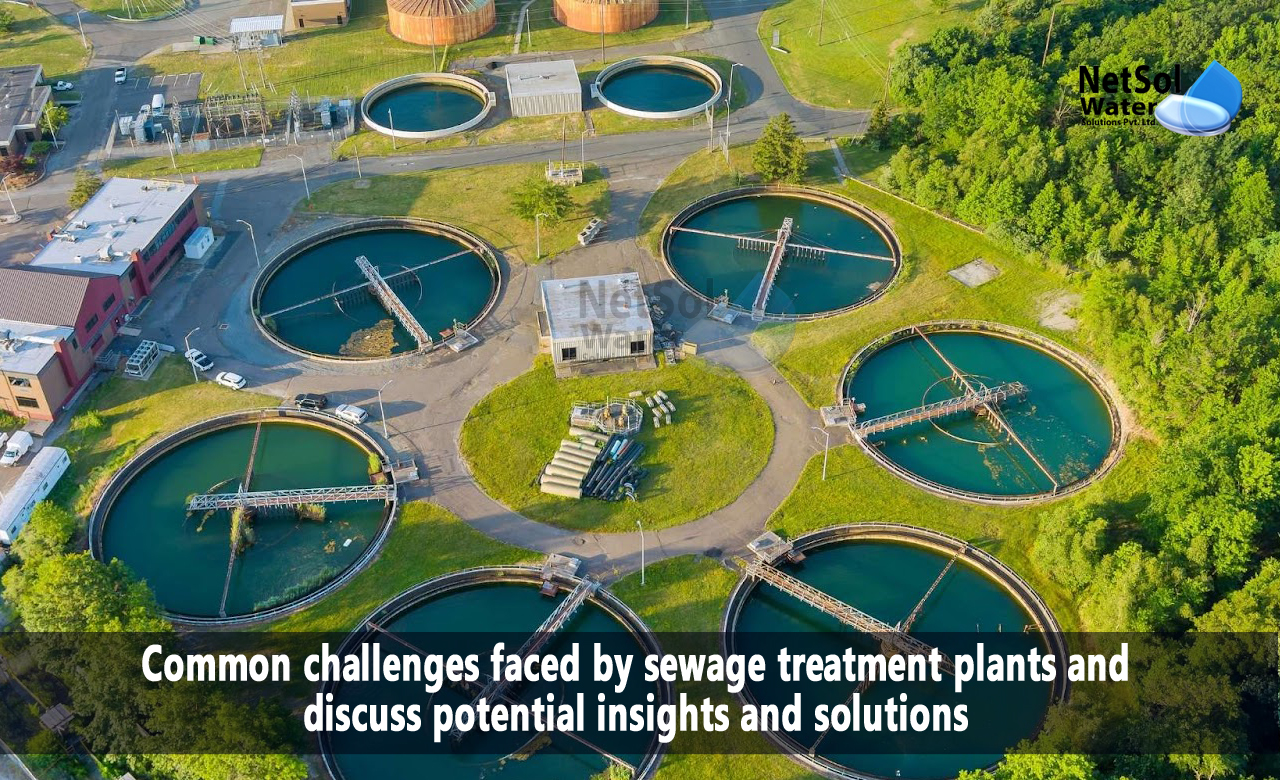What are the Common challenges faced by sewage treatment plants?
Sewage treatment plants are vital infrastructure that ensures the safe and efficient treatment of wastewater. However, these facilities often face various challenges that can hinder their effectiveness and environmental impact.
In this blog, we will explore some common challenges faced by sewage treatment plants and discuss potential insights and solutions to overcome them.
Aging Infrastructure
One significant challenge for sewage treatment plants is aging infrastructure. Many treatment facilities around the world were built decades ago and require upgrades and rehabilitation. Aging equipment, pipelines, and treatment systems can lead to inefficiencies, increased energy consumption, and higher maintenance costs. To address this challenge, it is crucial to prioritize infrastructure investments, conduct regular assessments, and implement maintenance and upgrade plans to ensure the continued performance and longevity of treatment plants.
Population Growth and Capacity
The growing population puts increased pressure on sewage treatment plants, as they need to handle larger volumes of wastewater. Existing treatment plants may struggle to meet the demands, leading to potential overload and decreased treatment efficiency. To navigate this challenge, it is necessary to assess the capacity of treatment plants and plan for expansions or construct new facilities when needed. Additionally, implementing water conservation measures and promoting sustainable practices can help reduce the overall wastewater load.
Emerging Contaminants
The presence of emerging contaminants in wastewater, such as pharmaceuticals, microplastics, and chemicals, poses a significant challenge for sewage treatment plants. These contaminants are not effectively removed by traditional treatment processes and can have adverse effects on the environment and human health. To address this issue, research and development are crucial to explore advanced treatment technologies that can target and remove emerging contaminants. Collaboration between researchers, wastewater utilities, and regulatory bodies is essential to stay ahead of emerging challenges.
Energy Consumption and Carbon Footprint
Sewage treatment plants are energy-intensive facilities, and their operations contribute to greenhouse gas emissions. The energy consumed is primarily required for aeration, pumping, and treatment processes. To reduce energy consumption and carbon footprint, treatment plants can explore energy-efficient technologies, such as energy recovery systems, renewable energy sources (solar, wind, or biogas), and optimized process control. Implementing energy management strategies and conducting energy audits can also help identify opportunities for improvement and cost savings.
Nutrient Management
Nutrient management, particularly the removal of nitrogen and phosphorus, is a critical challenge for sewage treatment plants. Excess nutrients in treated effluent can lead to eutrophication, causing harmful algal blooms and negatively impacting water quality. To address this challenge, advanced treatment processes like biological nutrient removal (BNR) and enhanced tertiary treatment methods can be employed. Additionally, promoting source control measures and implementing nutrient trading or offset programs can help manage nutrient loads more effectively.
Public Awareness and Engagement
Public awareness and engagement are crucial for the success of sewage treatment plants. Many communities may not fully understand the importance of proper wastewater management or the impact of their daily activities on the treatment process. Education and outreach programs can help raise awareness about the significance of sewage treatment and the need for responsible water use. Engaging with the community and stakeholders, and addressing concerns and questions, fosters a sense of ownership and support for sewage treatment initiatives.
Conclusion
Sewage treatment plants play a vital role in protecting public health, preserving the environment, and ensuring the availability of clean water resources. However, they face numerous challenges, ranging from aging infrastructure to emerging contaminants and energy consumption. By prioritizing investments in infrastructure, embracing innovation, and promoting public awareness, we can navigate these challenges effectively. Collaboration among policymakers, researchers, communities, and wastewater utilities is crucial to finding sustainable solutions and ensuring the continued success of sewage treatment plants. Together, we can build a resilient and environmentally conscious wastewater management system for a cleaner and healthier future.
Netsol Water is Greater Noida-based leading water & wastewater treatment plant manufacturer. We are industry's most demanding company based on client review and work quality. We are known as best commercial RO plant manufacturers, industrial RO plant manufacturer, sewage treatment plant manufacturer, Water Softener Plant Manufacturers and effluent treatment plant manufacturers. Apart from this 24x7 customer support is our USP. Call on +91-9650608473, or write us at enquiry@netsolwater.com for any support, inquiry or product-purchase related query.



